
Politics
22:41, 23-Jul-2017
Former rivals Iran, Iraq sign accord on military cooperation
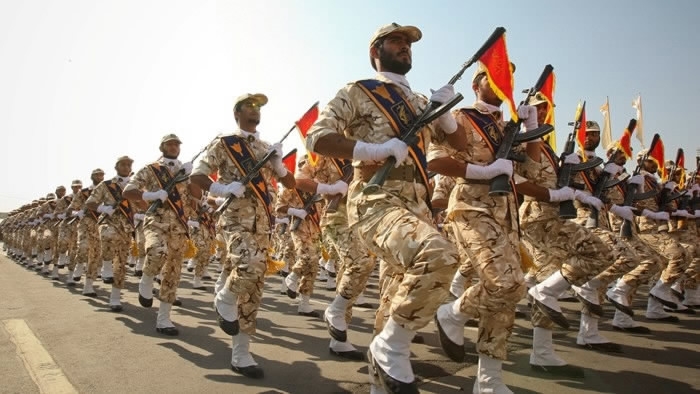
Nearly three decades after the end of their brutal war, Iran and Iraq signed an agreement on Sunday to step up military cooperation and the fight against "terrorism and extremism," Iranian media reported.
Iranian Defense Minister Hossein Dehghan and his Iraqi counterpart Erfan al-Hiyali signed a memorandum of understanding which also covered border security, logistics and training, the official news agency IRNA reported.
Heading a military delegation, Hiyali arrived in Tehran on Saturday for an official visit.
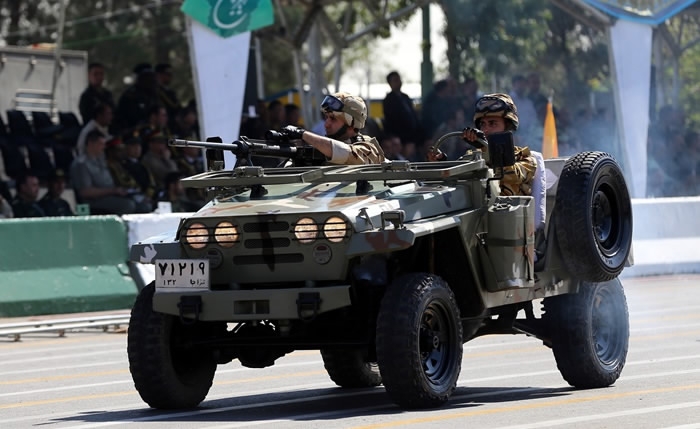
Iran marks the 35th anniversary of the start of the 1980-1988 war with Iraq in Tehran, September 22, 2015. /VCG Photo
Iran marks the 35th anniversary of the start of the 1980-1988 war with Iraq in Tehran, September 22, 2015. /VCG Photo
"Extending cooperation and exchanging experiences in fighting terrorism and extremism, border security, and educational, logistical, technical and military support are among the provisions of this memorandum," IRNA reported after the signing of the accord in Tehran.
Iran-Iraq ties have improved since Iran's long-time enemy Saddam Hussein was toppled in 2003 and an Iraqi government led by Shi'ite Muslims came to power. Iran is mostly a Shi'ite nation.
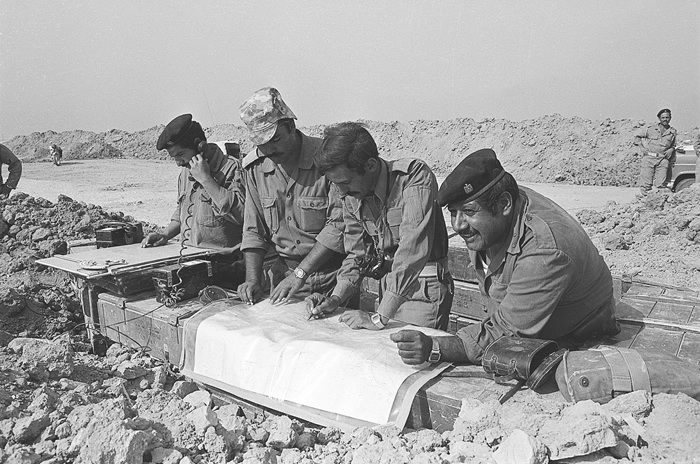
Iraqi commanders coordinate shelling of Iranian cities Abadan and Khorramshahr, October 2, 1980. /VCG Photo
Iraqi commanders coordinate shelling of Iranian cities Abadan and Khorramshahr, October 2, 1980. /VCG Photo
Iran vows full support for Iraq
On Saturday, Dehqan said that Iran would continue to provide full support to Iraq and its government to establish security and stability.
"We have cooperated and will cooperate with the Iraqi government and the nation and will continue our support," Dehqan said in a meeting with al-Hiyali.
"We will also use our utmost political, economic and military capabilities along with Iraq's capabilities to establish sustainable security and stability in the country and create a powerful Iraq," he added.
The Iranian minister hailed Iraq's recent achievements in the fight against terrorism and the liberation of the northern city of Mosul.
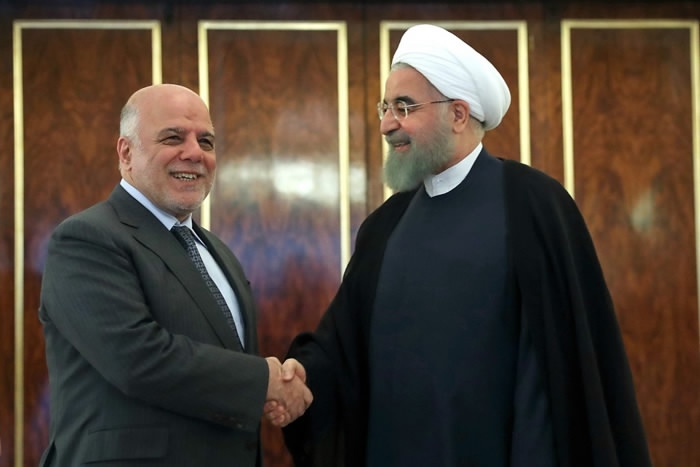
Iranian President Hassan Rouhani (R) meets with Iraqi Prime Minister Haider al-Abadi in Tehran, Iran, June 20, 2017. /VCG Photo
Iranian President Hassan Rouhani (R) meets with Iraqi Prime Minister Haider al-Abadi in Tehran, Iran, June 20, 2017. /VCG Photo
"A regional and international consensus must be achieved against terrorism and its supporters," Dehqan stressed.
National unity and integrity in Iraq would guarantee stability, security and interests of all ethnic groups in the country, he said, adding that Iran would never accept the disintegration of Iraq.
The Iraqi defense minister lauded Iran's full support for the Iraqi government, nation and the armed forces and called for further development of defense and military cooperation with the Islamic republic.
US-Iran tensions
US President Donald Trump has voiced concern over what he sees as growing Iranian influence in conflicts in Syria, Yemen and Iraq, where it is aligned with Shi'ite fighters.
Tensions between Iran and the United States have heightened since the election of Trump, who has often accused Tehran of backing militant groups and destabilizing the region.
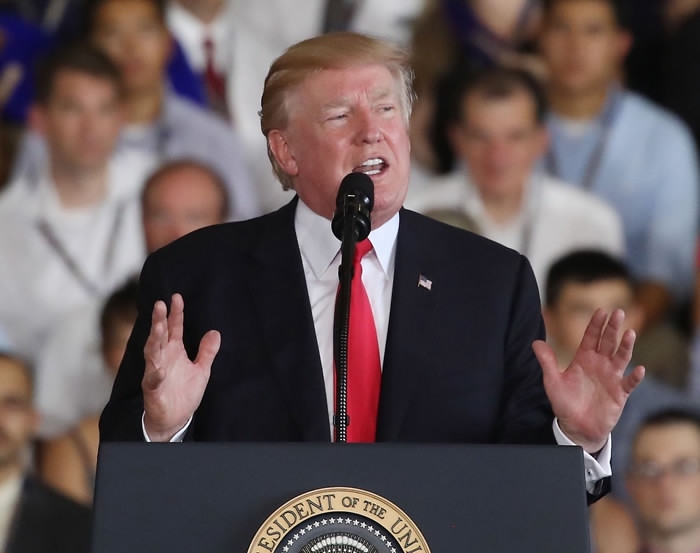
US President Donald Trump is worried about Iran's growing influence in Iraq. /VCG Photo
US President Donald Trump is worried about Iran's growing influence in Iraq. /VCG Photo
Earlier this month, Trump said that new threats were emerging from the DPRK, Iran and Syria and "governments that finance and support them."
The US military has accused Iran of stoking violence in Iraq by funding, training and equipping militias. Iran denies this, blaming the presence of US troops for the violence.
(Source: Reuters, Xinhua)
Related stories:

SITEMAP
Copyright © 2018 CGTN. Beijing ICP prepared NO.16065310-3
Copyright © 2018 CGTN. Beijing ICP prepared NO.16065310-3